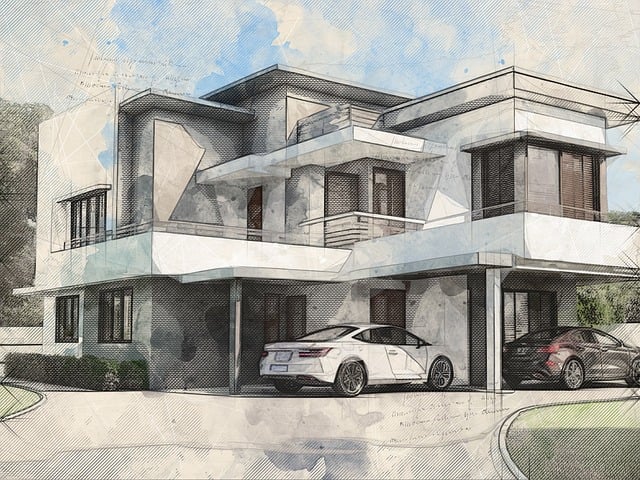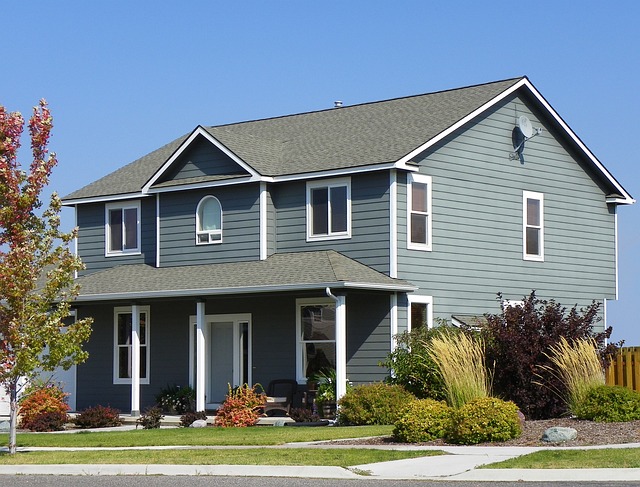Singapore's Executive Condos (ECs) are a specialized housing segment designed for middle-income earners, offering leasehold properties typically with a 99-year tenure. The EC market is influenced by various factors including location, unit type, development age, and market conditions, with pricing patterns distinct from both public housing and private condominiums. Government policies play a crucial role in shaping the EC landscape, ensuring affordability and stability through eligibility criteria and financial regulations. The market's responsiveness to economic trends, interest rate changes, and government interventions underscores its dynamic nature. Over the past decade, EC prices have shown a generally upward trend with fluctuations responding to economic conditions and policy adjustments. Factors like proximity to amenities, development age, and broader economic indicators are key in assessing investment potential. The integration of predictive analytics has become instrumental in forecasting future price trends by analyzing historical data, current market dynamics, and economic indicators, providing investors with informed strategies to navigate the Executive Condo market in Singapore.
navies the intricate pricing trajectory of Executive Condos (ECs) in Singapore over the past decade, this article dissects the multifaceted factors influencing their market value. From analyzing historical trends to examining the current dynamics, including the effects of government policies on affordability and pricing, we delve into the comprehensive landscape of ECs. By scrutinizing supply and demand patterns in EC development, as well as employing predictive analysis based on robust data, readers will gain valuable insights into future price movements for these housing options.
- Understanding the Executive Condo (EC) Landscape in Singapore
- Historical Pricing Trends of Executive Condos: A Decade-Long Perspective
- Factors Influencing Current Executive Condo Prices
- Market Dynamics: Supply and Demand in EC Development
- The Impact of Government Policies on Executive Condo Affordability and Pricing
- Predictive Analysis: Future Price Movements for Executive Condos Based on Trends and Data
Understanding the Executive Condo (EC) Landscape in Singapore

In Singapore, the Executive Condominium (EC) landscape presents a unique segment within the property market that caters to the middle-income group. These hybrid housing options offer the benefits of a condo while allowing ownership on a leasehold basis. Prospective buyers of ECs in Singapore should understand that these properties are designed with a minimum lease term of 99 years, which significantly influences their value and appeal over time. The price analysis of ECs is thus influenced by factors such as location, unit type, age of the development, and the overall property market conditions. Notably, the pricing trajectory of ECs can vary from that of public housing and private condominiums, necessitating a nuanced approach to valuation.
The price trends of Executive Condos in Singapore are subject to government policies aimed at ensuring a stable and balanced property market. The eligibility criteria for purchasing an EC include being a Singapore citizen or flat owner who has fulfilled the minimum occupation period, and income ceilings that differentiate it from HDB flats and private properties. This distinction makes the EC landscape a dynamic and responsive sector to monitor, as it reflects both market demands and the evolving policies that govern it. Potential investors and buyers should delve into the historical price performance of ECs, considering factors such as the development’s age, its location relative to amenities and transportation nodes, and the overall economic climate. This comprehensive approach will provide a clearer picture of the potential for capital appreciation and rental yield that ECs offer within Singapore’s property market.
Historical Pricing Trends of Executive Condos: A Decade-Long Perspective

Over the past decade, the Executive Condo (EC) market in Singapore has exhibited a dynamic pricing trend that reflects broader economic conditions and policy adjustments. The prices of ECs have seen cycles of appreciation and moderation, influenced by factors such as interest rate fluctuations, changes in loan-to-value ratios, and the supply of new units. Analyzing historical data from 2010 to 2020, it’s evident that ECs have generally appreciated over time, with particular spikes during periods of limited supply or when demand was high due to demographic shifts favoring nuclear families, which often prefer ECs for their combination of affordability and size.
In the early part of the decade, prices for Executive Condos remained relatively stable, with incremental growth tied to Singapore’s economic growth and the government’s efforts to stabilize the housing market. However, as the decade progressed, the introduction of cooling measures led to a more measured increase in EC prices. The measures aimed to prevent speculative buying and ensure that these homes remained accessible to eligible middle-income families. Despite these regulatory impacts, the long-term trend has shown a consistent appreciation in Executive Condo values, underlining their status as a valuable housing option for upgraders in Singapore’s vibrant residential landscape.
Factors Influencing Current Executive Condo Prices

Executive Condos (ECs) in Singapore have seen a dynamic pricing landscape influenced by various factors. The location of these condos plays a pivotal role; those situated near mature estates or within close proximity to amenities, transportation nodes, and shopping centers tend to command higher prices due to their desirability. The age of the EC also impacts its value, with newer units generally fetching higher prices compared to older ones, reflecting the preference for modern living spaces.
The demand-supply dynamics in the market are another critical factor affecting Executive Condo prices. A higher number of applicants for the Build-To-Order (BTO) flats, which include ECs, can drive up prices as developers capitalize on the increased competition among buyers. Additionally, government policies and interest rate adjustments can have a profound effect on pricing, with cooling measures typically leading to a softening of prices in the short term. Market sentiment, influenced by economic conditions and the broader real estate market trends, also plays a significant role in shaping the prices of Executive Condos. Investors and homeowners alike closely monitor these factors to make informed decisions about purchasing or selling EC units within this competitive housing segment.
Market Dynamics: Supply and Demand in EC Development

The dynamics of Executive Condominium (EC) pricing are profoundly influenced by the interplay of supply and demand within the property market in Singapore. Developers, when planning EC projects, must carefully gauge the prevailing market conditions to ensure their investments yield optimal returns. Supply factors include the number of available units, the size of new developments, and the release schedule of these units into the market. Each new EC launch can impact the overall supply, potentially affecting pricing as developers adjust their offerings to meet demand.
Demand for ECs is driven by a diverse group of buyers, including upgraders from public housing and young couples seeking larger living spaces without the restrictions imposed on public housing residents after they have fulfilled the minimum occupation period. Factors influencing demand include economic conditions, population growth, interest rates, and government policies that affect eligibility and ownership rules. These factors can lead to fluctuations in the property market, which in turn influence EC prices. For instance, an influx of new citizen households eligible for ECs can increase demand, potentially leading to higher prices if the supply remains limited. Conversely, a slowdown in the economy might dampen demand, affecting pricing negatively. Therefore, a comprehensive analysis of both current and anticipated market trends is essential for anyone looking to understand the price dynamics of Executive Condos.
The Impact of Government Policies on Executive Condo Affordability and Pricing

The landscape of Executive Condos (ECs) in Singapore is significantly influenced by the strategic policies enacted by the government, which play a pivotal role in determining affordability and pricing. These policies are designed to strike a balance between providing housing options for middle-income families and maintaining the stability of the property market. The introduction of the Selective En Bloc Collective Sales (SBCS) scheme has been instrumental in facilitating the sale of larger sites to developers, which in turn, has a direct impact on the pricing of new ECs. This mechanism ensures that units remain accessible to the target demographic while allowing for competitive market rates. Additionally, the government’s stance on loan-to-value (LTV) ratios and the total debt servicing ratio (TDSR) framework are critical factors in managing the affordability of ECs. These regulations are tailored to ensure that buyers can comfortably service their mortgages over the long term, thereby contributing to a stable and sustainable property market. As such, investors and potential homeowners alike must keep abreast of these policies, as they are key determinants of Executive Condo prices in Singapore.
Predictive Analysis: Future Price Movements for Executive Condos Based on Trends and Data

In recent years, predictive analysis has become a pivotal tool in forecasting future price movements for Executive Condos within Singapore’s property market. By leveraging historical sales data, current market trends, and economic indicators, real estate analysts can discern patterns that inform predictions about the trajectory of Executive Condo prices. Factors such as population growth, employment rates, interest rates, and government policies are all considered in these models to project potential price shifts over varying timeframes. For instance, an uptick in the overall economy could lead to a surge in demand for housing, pushing Executive Condo prices upward. Conversely, changes in lending regulations or economic downturns could have a dampening effect on prices. The accuracy of these predictive models is contingent upon the quality and granularity of data fed into the algorithms, making continuous data collection and refinement essential for maintaining their efficacy.
Investors and stakeholders alike rely on these predictions to make informed decisions regarding the purchase or sale of Executive Condos. The insights gleaned from predictive analysis enable them to anticipate market shifts, thus optimizing investment strategies and capitalizing on favorable price movements. It is imperative for real estate professionals to stay abreast of these trends, as the dynamics of the property market can change rapidly. By employing advanced statistical methods and machine learning techniques, predictive models not only forecast future prices but also provide a nuanced understanding of the underlying factors influencing the Executive Condo market, ultimately guiding more strategic investment decisions.
In conclusion, the Singaporean market for Executive Condos presents a dynamic interplay of historical pricing trends, current market factors, and government policies that collectively shape their affordability and value. Analyzing data over the past decade reveals insightful patterns that, when coupled with an understanding of the EC landscape and the influence of supply and demand in development, provide a nuanced perspective on the trajectory of Executive Condo prices. As it stands, the impact of recent policy adjustments is evident, with implications for both current and prospective owners. Looking ahead, predictive analysis based on available trends suggests potential price movements that investors and homebuyers may anticipate. This comprehensive overview underscores the importance of staying informed about these multifaceted factors to make well-considered decisions in the Executive Condo market.



